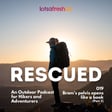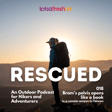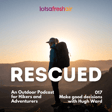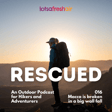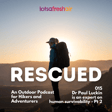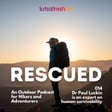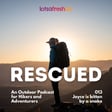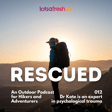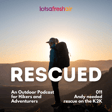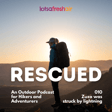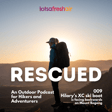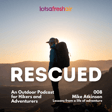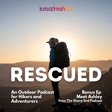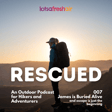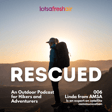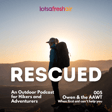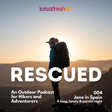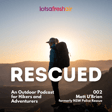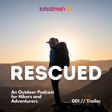
003 // Matt U'Brien (Part 2) - Empress Canyon Rescue
In 2020 over 3.7 million people from Australia and overseas visited the Blue Mountains - The most visited National Park in New South Wales. They're drawn to the dramatic clifftop views, deep valleys and diverse habitats that stretch over the 1 million hectares of this world Heritage sandstone plateaux, a landscape that is constantly being carved by water and reveals itself through waterfalls and canyons.
Today, I have the honour of welcoming back to the podcast Matthew U’Brien, who in the last episode shared his powerful story of life within his 17 year policing career.
Most of that was in Police Rescue in the Blue Mountains, and now his challenging journey outside, where he's advocating for better mental health outcomes for emergency services, first responders. If you haven't listened to that episode, I strongly recommend you do that first. So pop out and then return back here.
In this episode, Matt's going to take us inside Empress Canyon, the most popular of the Blue Mountains canyons, when during a regular day at work, he found himself moving from rescuer to needing rescue.
Today, he’s on a different journey, one that comes as a consequence of his years spent serving the community, often being alongside people on the worst day of their lives. This year will see him travel 2,400 km from the Lambert centre of Australia (Heart of Country), to Parliament House in Canberra (Heart of Nation), with a critical message for our Country’s leaders.
He is host of the Heart to Heart Walk Podcast, where we hear stories from current and past emergency services workers and look at the critical issue of first responder mental health.
The podcast is part of the Heart to Heart Walk project that we hear about in our episode.
You can get in touch with Matt here.
Language Warning.
The content in this episode may be confronting and difficult for some listeners; it includes issues of PTSD, depression, anxiety, suicide and trauma. Remember, if you need help, reach out by Googling ‘Mental Health Helpline’ in your area.
In Australia, you can call Lifeline 24/7 on 13 11 14 or visit BeyondBlue.org.au.
Further urgent help and information for first responders can be found at Phoenix Australia.
Thanks to
- Sponsor // Paddy Pallin
- Rescued Podcast main photo // Ben Cirulis and fotografija.com.au
- Nature SFX // freesound.org [Kangaroo Vindaloo and Monkey Pants]
